
Weird But Educational→The Wright English Blog
Weekly Series
Vocabulary Showcase - Mondays
Business Builder - Tuesdays
What The Fluff Wednesday - Wednesdays
GCSE and A-Level Goblin - Thursdays
Gateway to Grammar - Fridays
Blog Topics
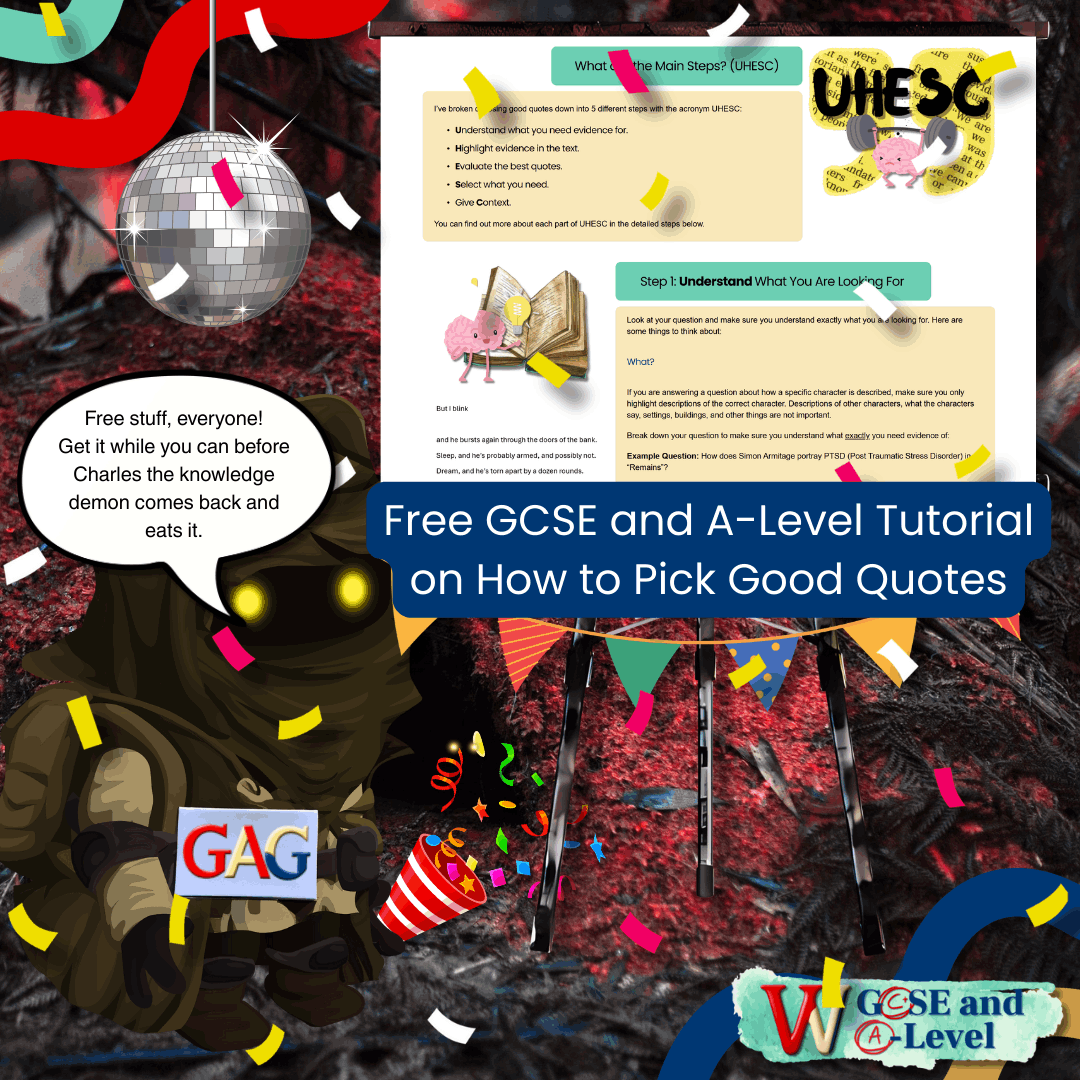
GCSE and A-Level Goblin: Free Guide on Picking Good Quotes for English Literature and Language
Gather round quickly, Charles doesn’t normally spend long in the bog of eternal stench, and he will be back before we know it.
Anyway, I’ve finally finished making a guide to picking good quotes for the Evidence section of your PEAD (or PEEL or whatever) paragraphs for English Literature and English Language.
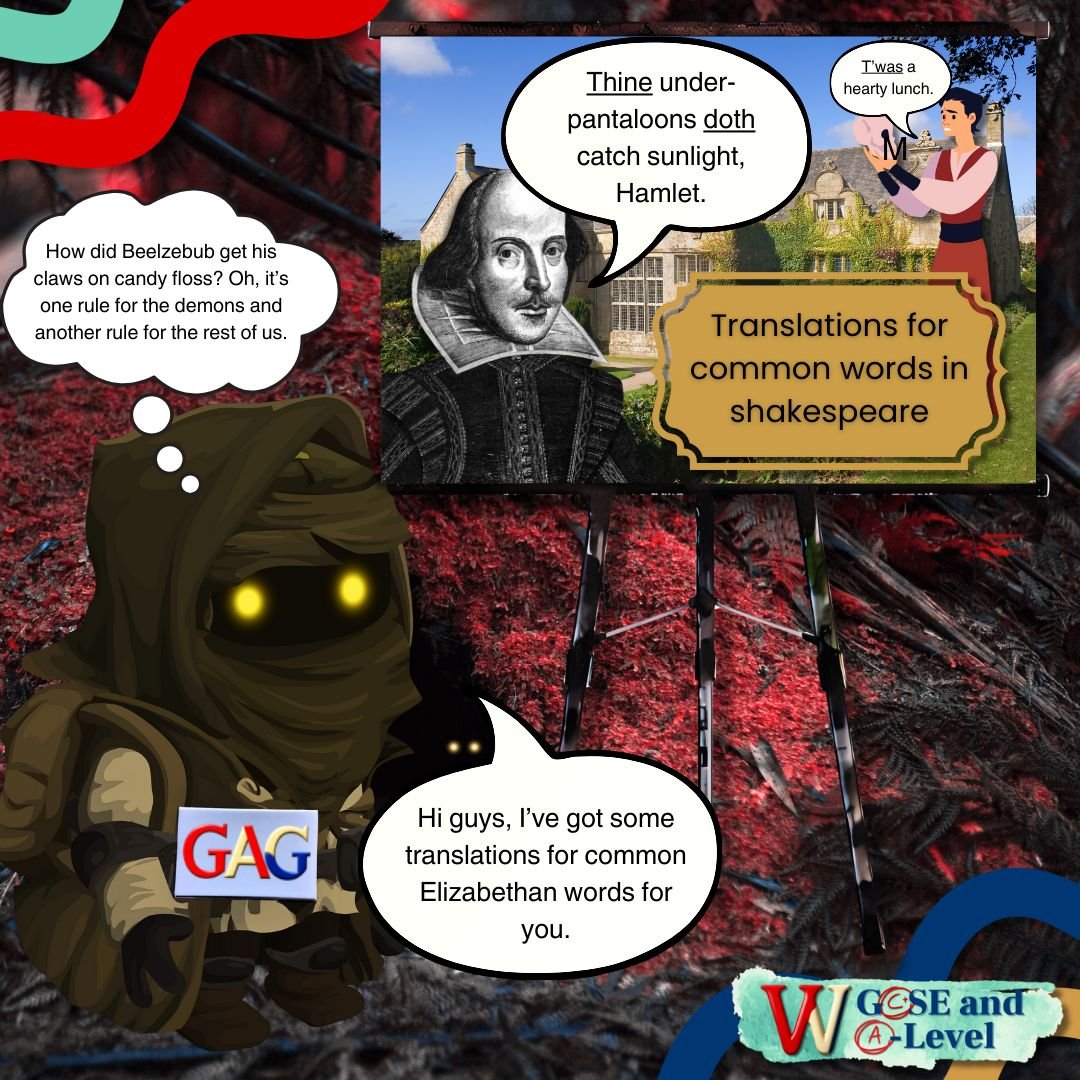
GCSE and A-Level Goblin: Translations for Common Words in Shakespeare
“This week we are looking at some really simple words that come up all the time in Shakespeare, and their modern English translations.”
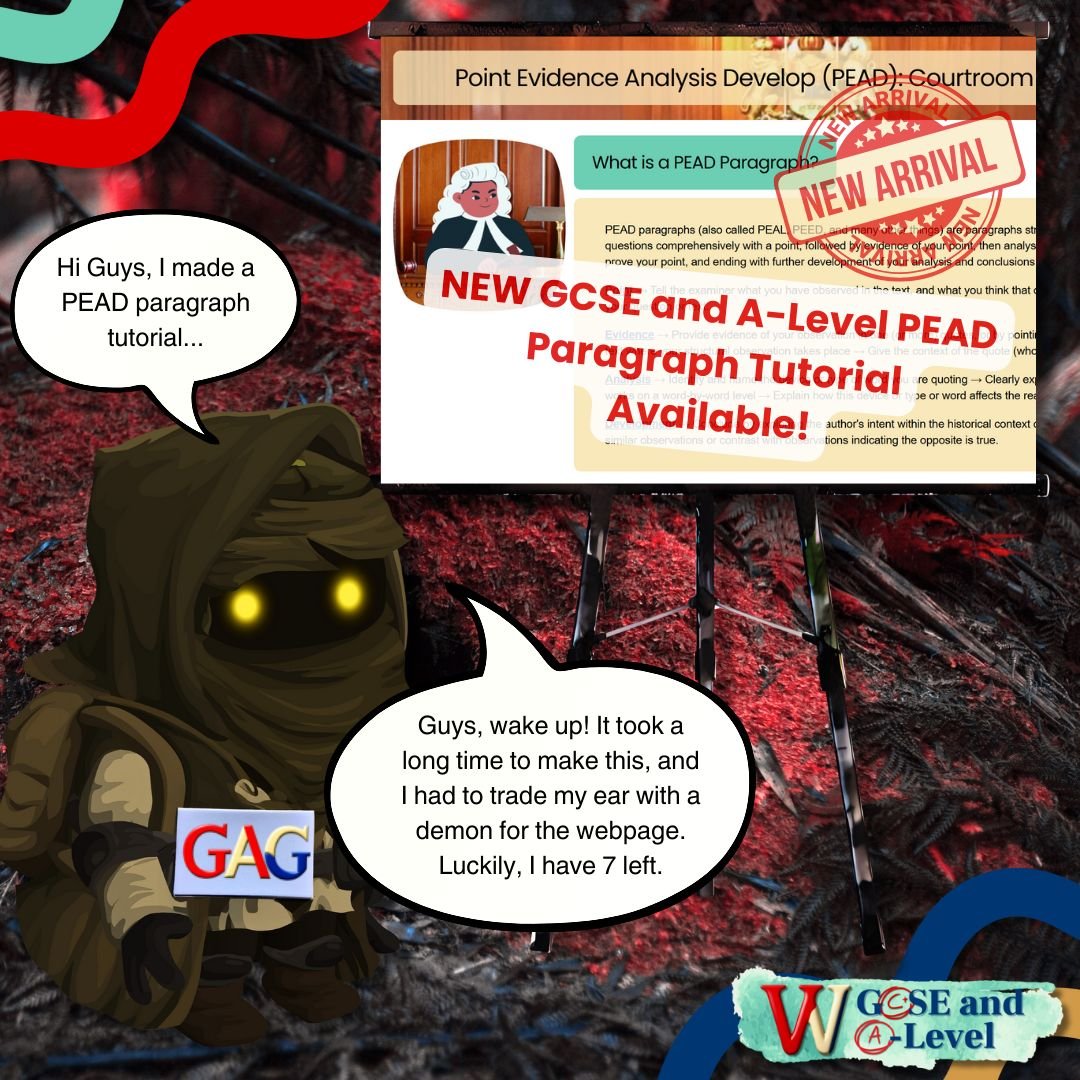
GCSE and A-Level Goblin: New PEAD Paragraph Tutorial Available
Anyway, I’m here to tell you about the GCSE and A-Level PEAD Paragraph Tutorial I made, and what it includes. So. let’s get stuck in.
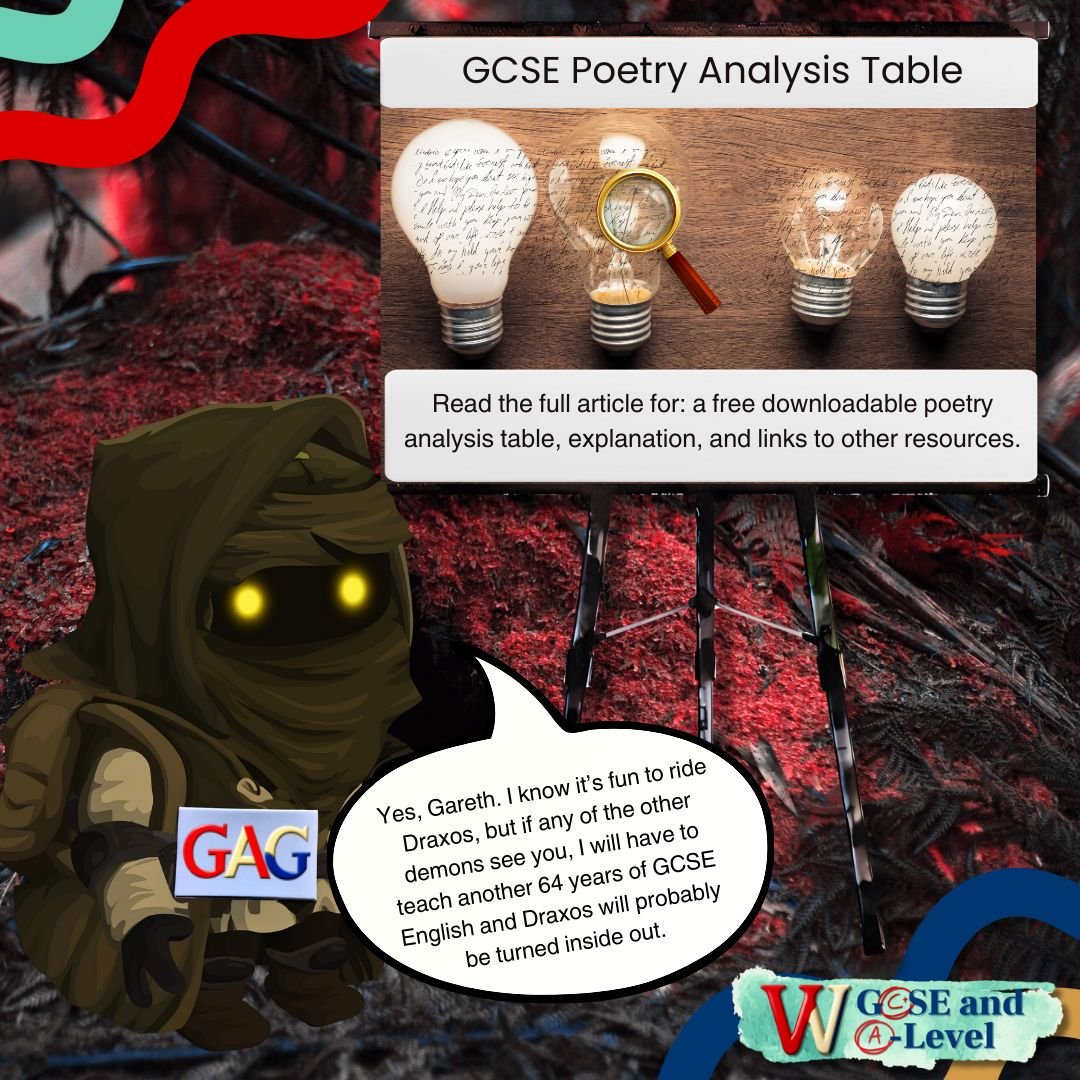
GCSE and A-Level Goblin: GCSE Poetry Analysis Table
So, today I want to introduce a neat way of analysing poetry for GCSE that makes sure you cover every topic you need to. Gareth! Draxos is tired now, stop kicking him!
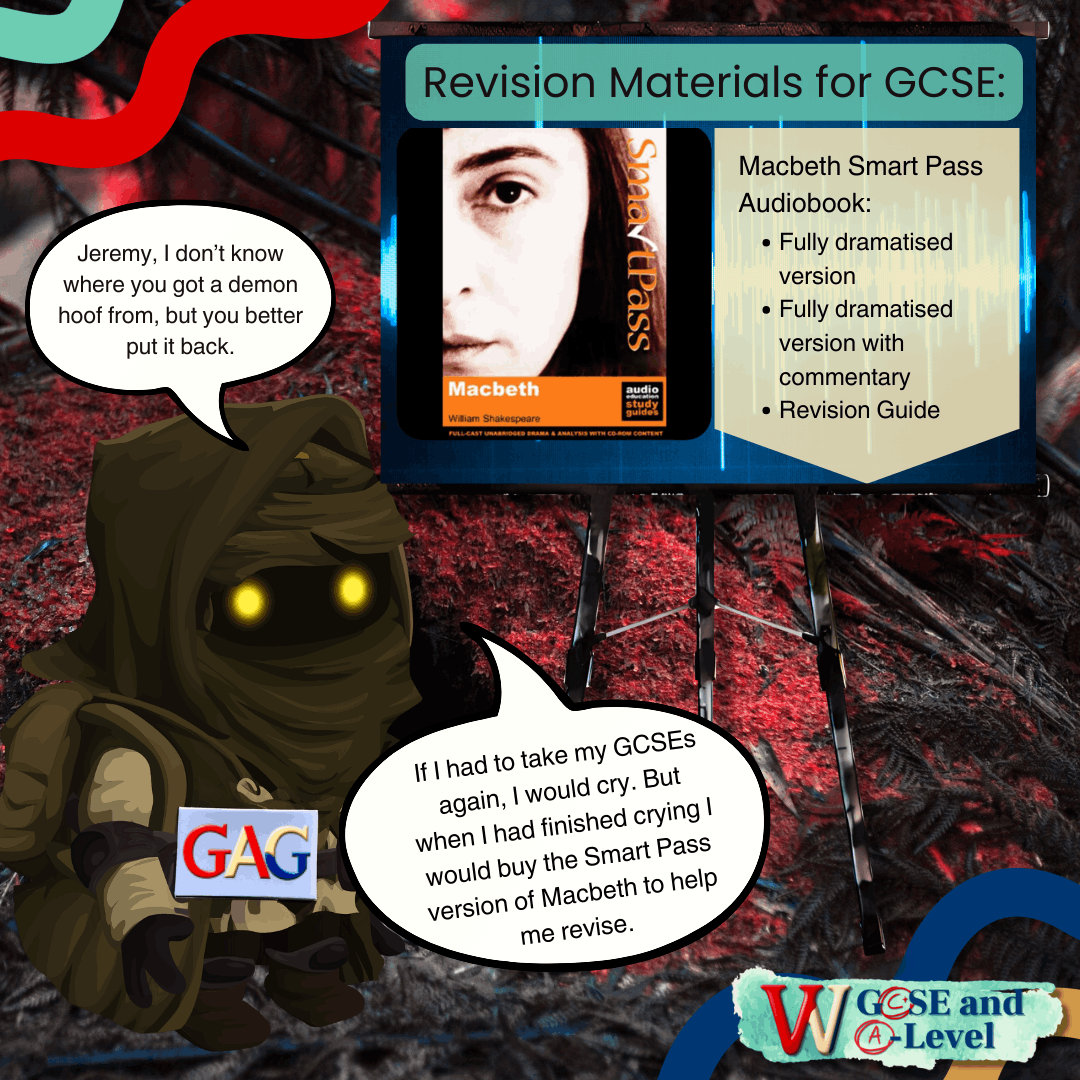
GCSE and A-Level Goblin: The Best Audiobook Version of Macbeth
GAG: “Hello everyone thanks for dragging yourself to my muddy forest hut and office. Today I’m gonna recommend a brilliant audiobook to help you revise Macbeth for GCSE English Literature, because I basically have to.”
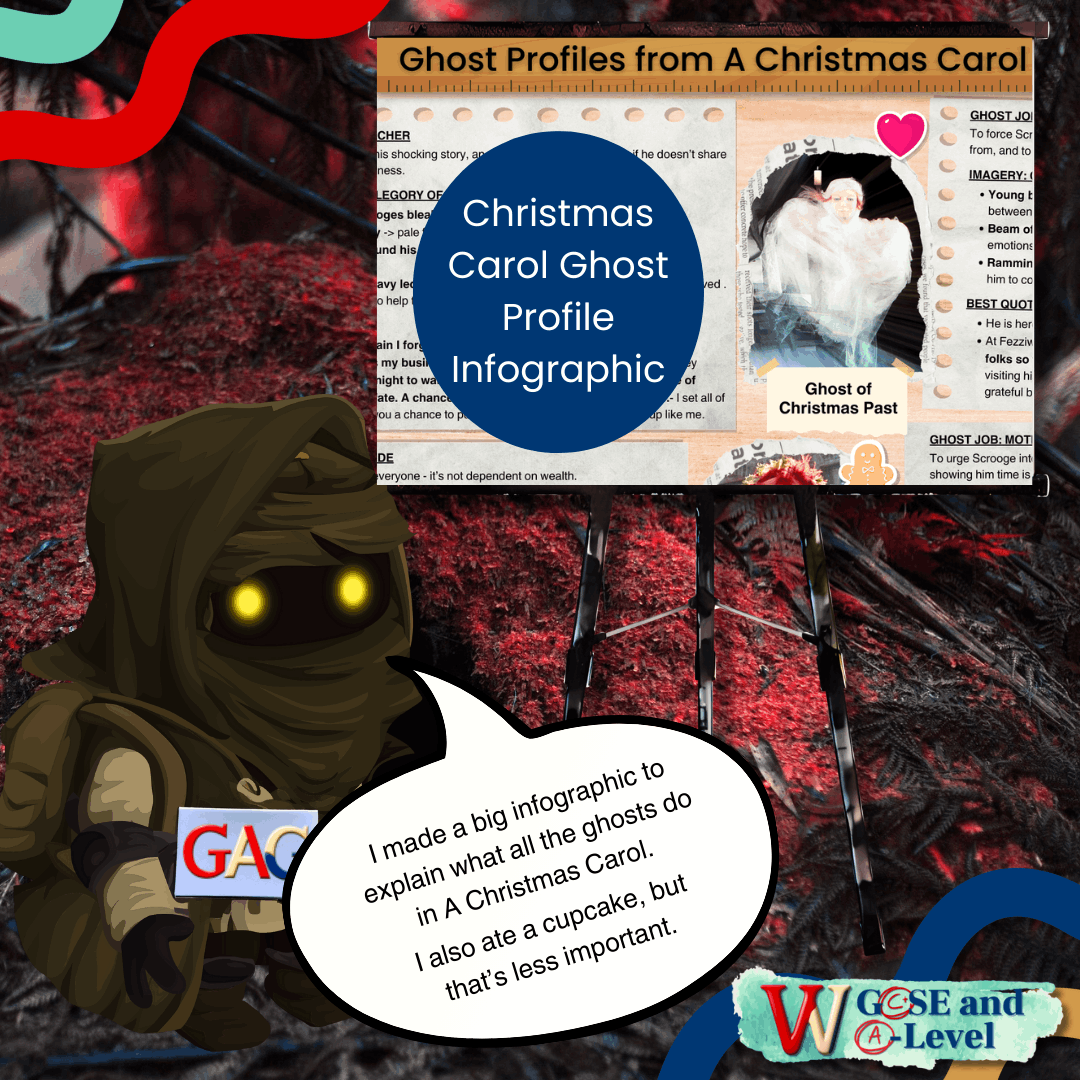
The GCSE and A-Level Goblin: New Christmas Carol Ghost Profiles
“This is more of an announcement than anything I suppose. I spent ages making one of those Infographic things that everyone likes. This one is all about the Ghosts in Charles Dickens’s A Christmas Carol.”
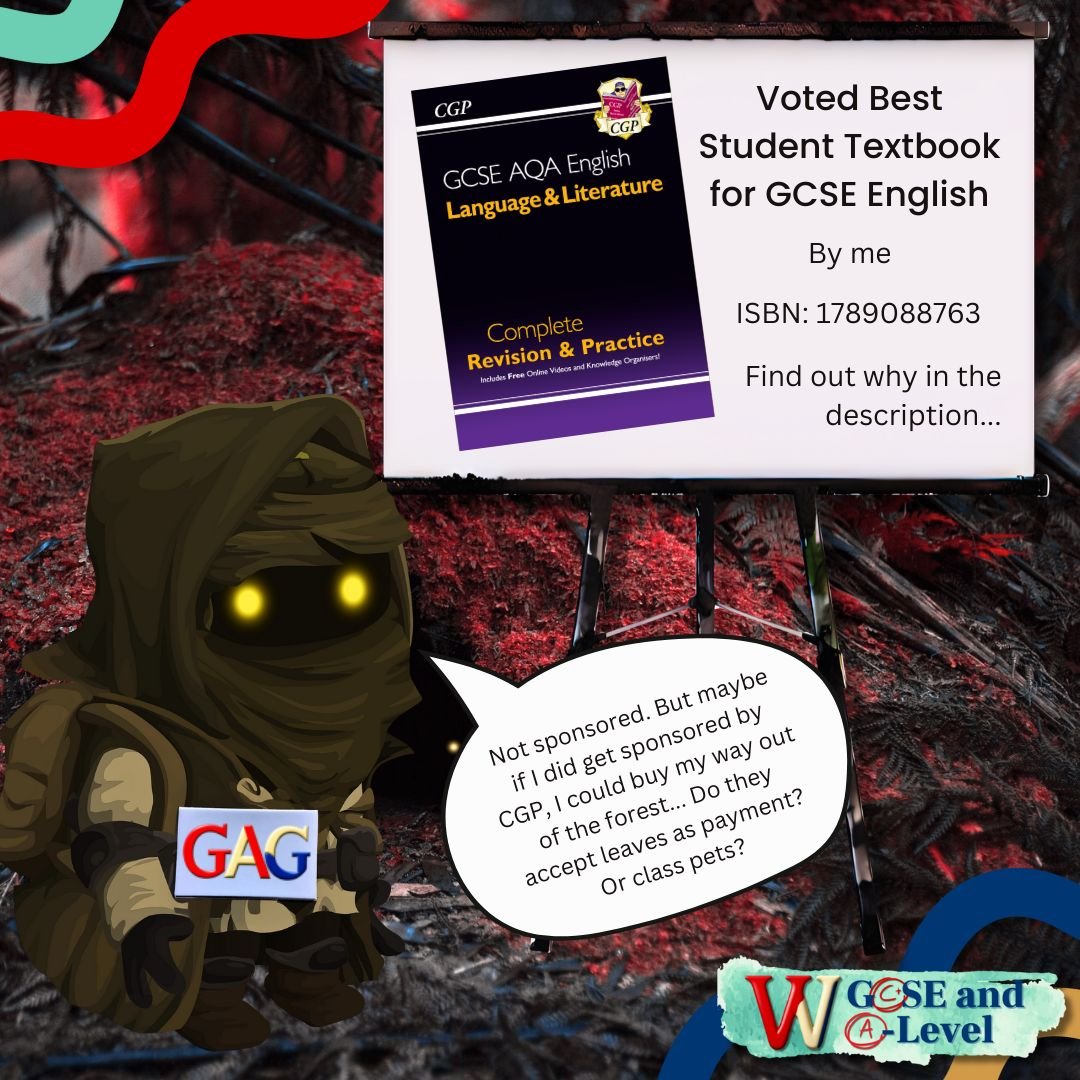
The GCSE and A-Level Goblin: Best Student Textbook for GCSE English
Today I want to talk to you about what I think is the best Student Textbook for GCSE English (for AQA anyway, I might find a different one for Edexcel and IGCSE). That textbook is the GCSE AQA English Language and Literature Complete Revision and Practice book by CGP.

GCSE and A-level Gremlin: Do I Need to Read All of My Set Texts?
Good afternoon everyone *sigh*. Today we are talking about whether you should read all of your A-Level or GCSE set texts for English Literature.
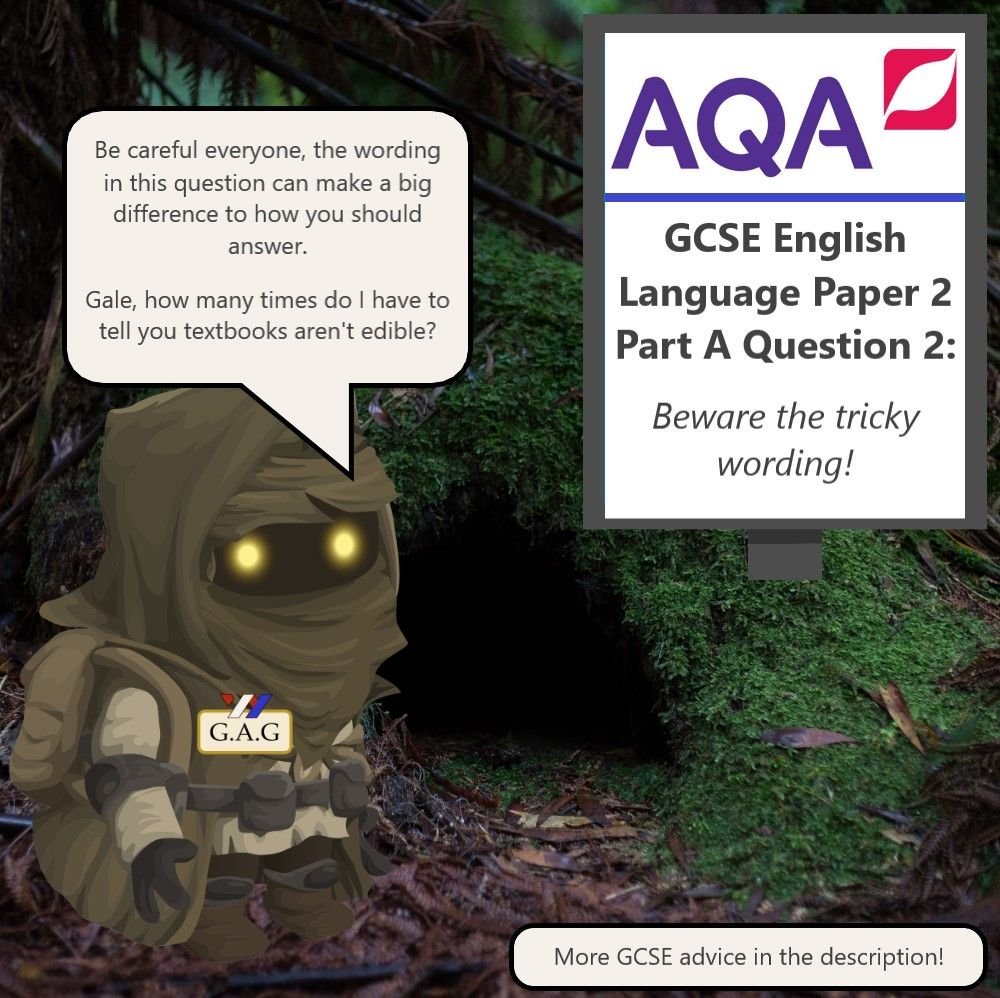
The GCSE and A-Level Goblin: AQA GCSE English Language Paper 2 Question 2 Advice
Alright guys, thanks for coming. We’re gonna look at some important information and advice about how to read and answer the comparison question in AQA GCSE English Language Paper 2, question 2. I mean… we will when Gale stops eating all my teaching materials.
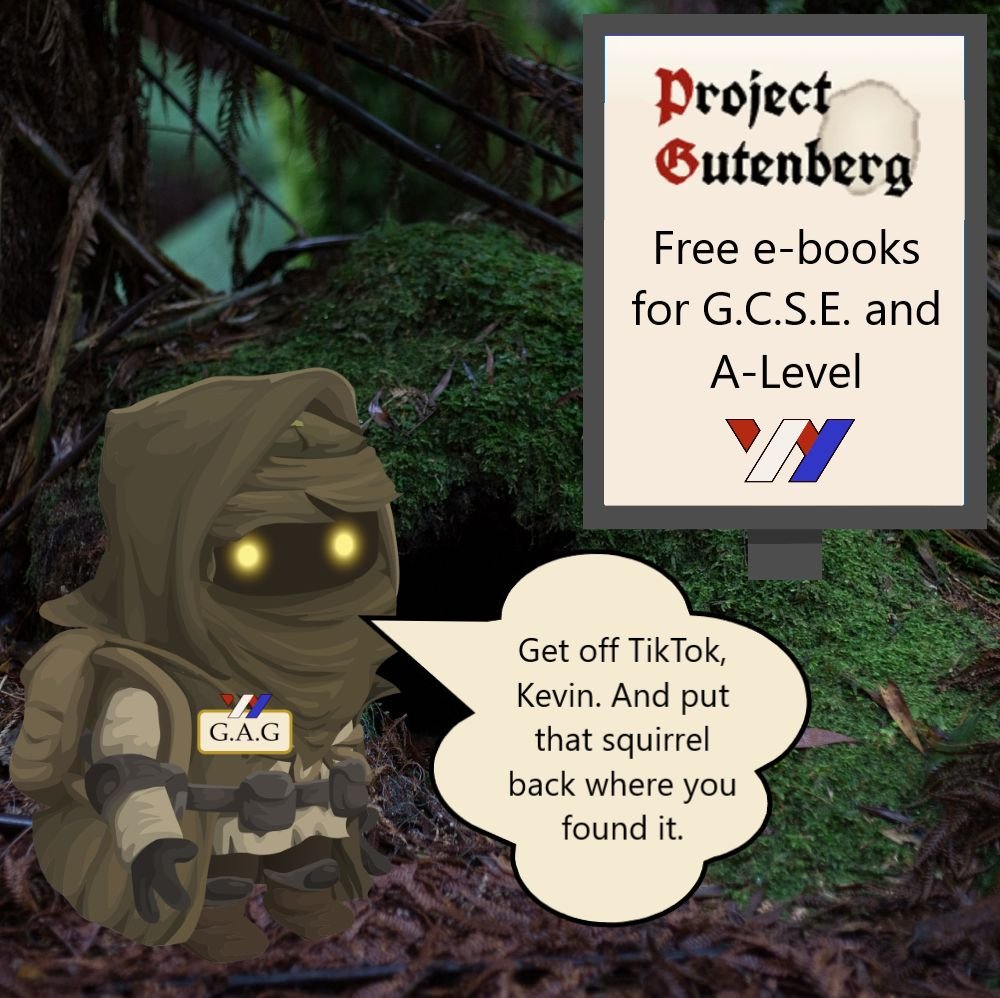
The GCSE and A-Level Goblin: Free E-Books at Project Gutenberg
Good afternoon, smelly human students. Allow me to introduce myself, I am G.A.G, the GCSE and A-Level Goblin. I was summoned into existence by a weird English lady and my purpose is to talk about… well… GCSE and A-Level stuff.
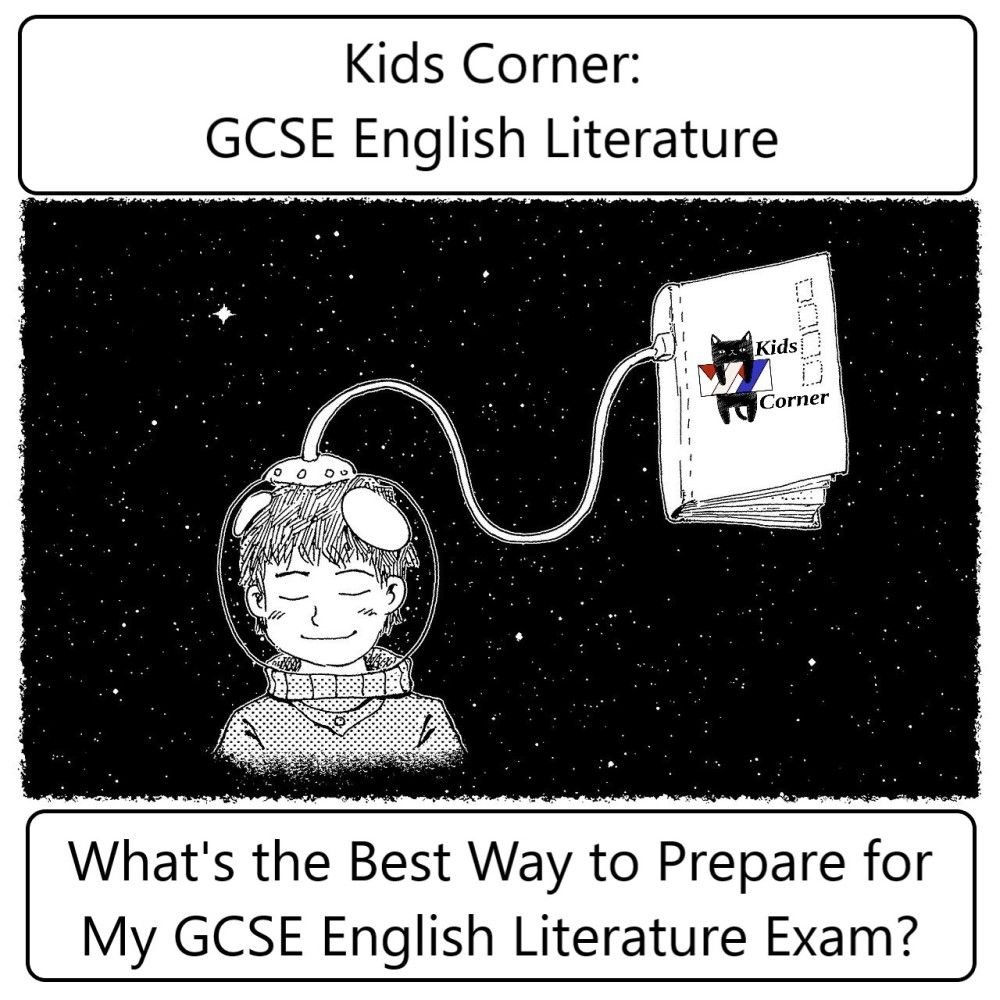
Kids Corner: What’s the Best Way to Prepare for My GCSE English Literature Exam?
Many GCSE Students are already preparing for their English Literature Exams next year, and the pressure from teachers and adults is quite bad. With all that pressure, it can be hard to know what the best way to prepare really is. That’s why I’m here to give you impartial (not biased and not related to my own success) advice.
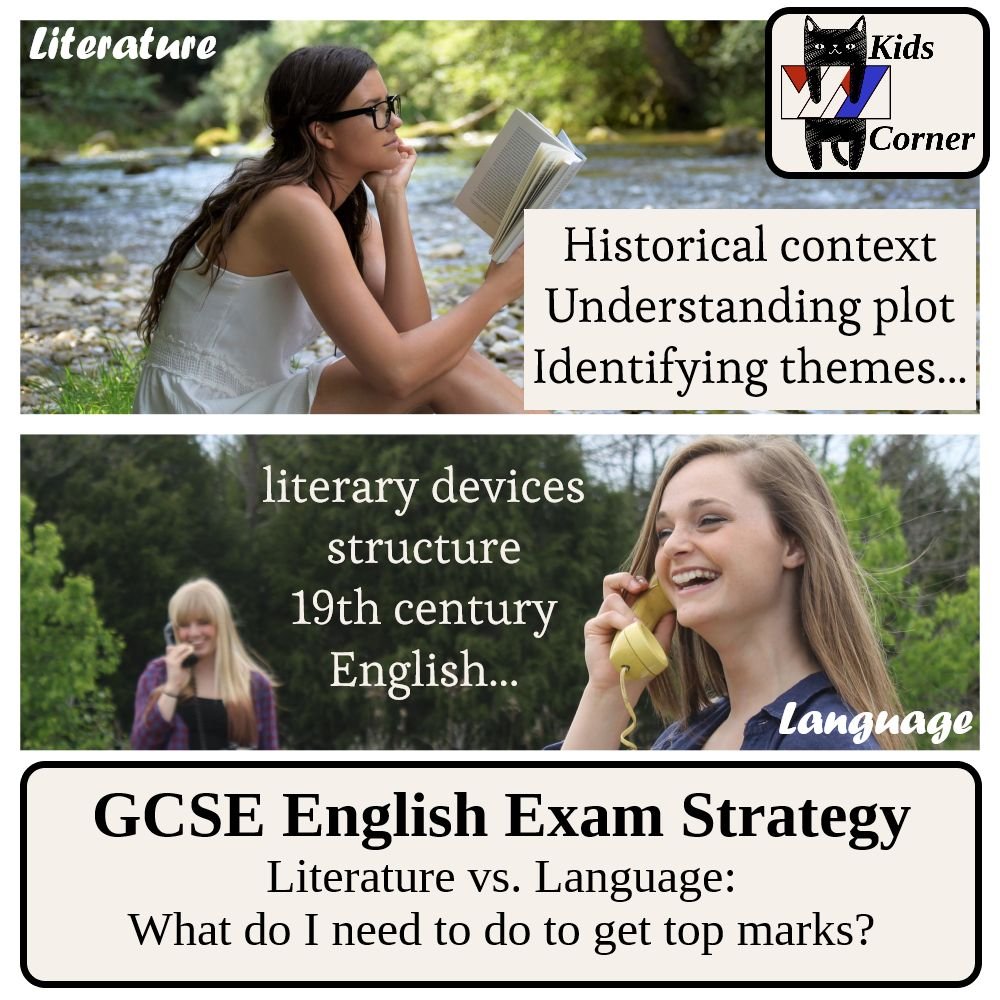
Kids Corner: GCSE Exam strategy for English Literature
The most important part of it is to know what the examiners are looking for in the marking scheme….
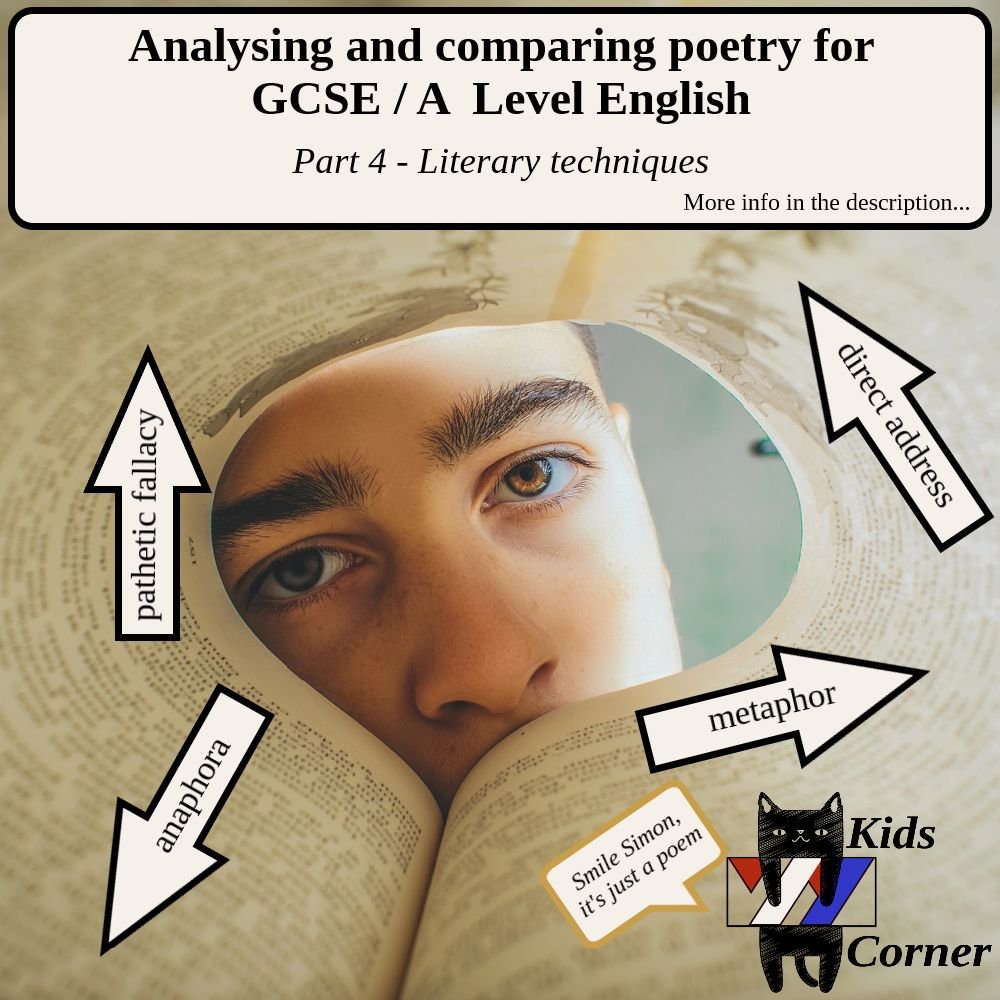
Kids Corner: Comparing and Analysing poetry - Literary techniques
Part four of analysing and comparing poetry for GCSE and A-Level is Literary techniques!
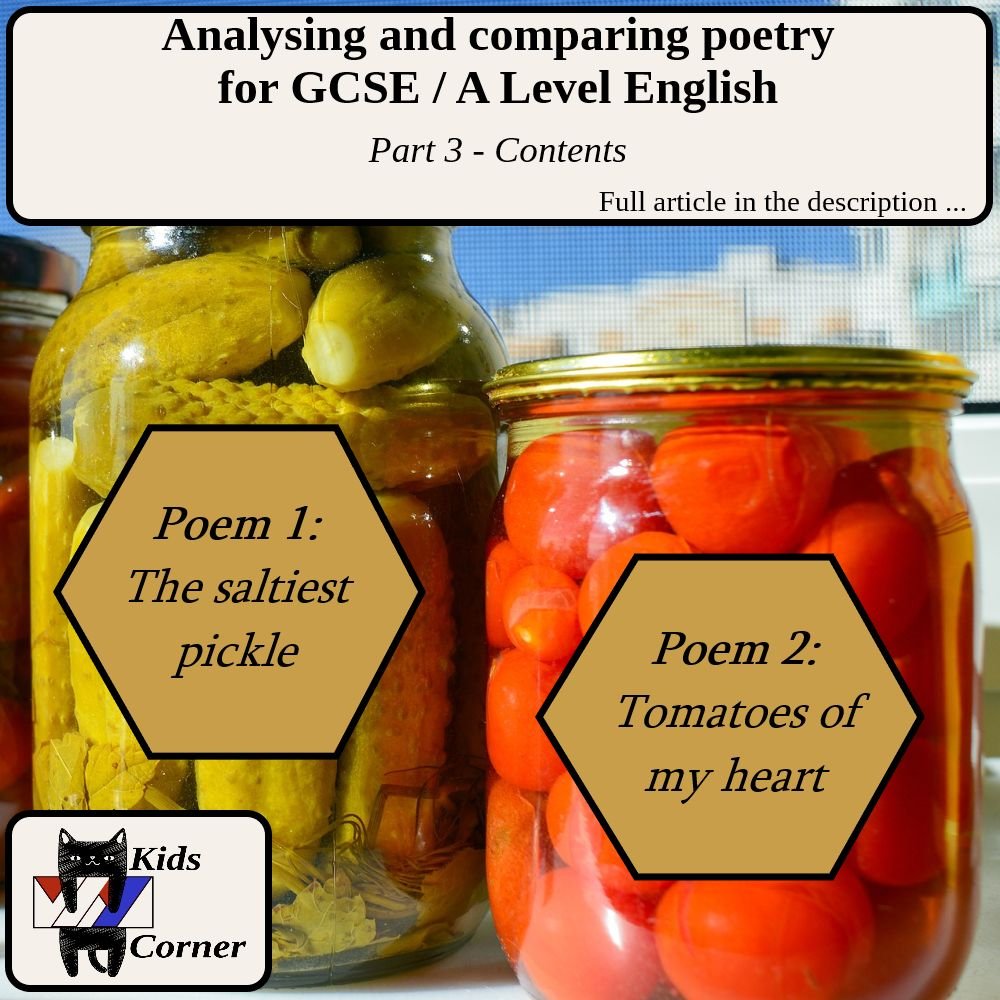
Kids Corner: Analysing and comparing Poems for GCSE - contents
Welcome to part three of how to analyse and compare poetry for GCSE and A Level English!

Kids Corner: Exams, what to do in those “Oh Fluff” Moments
So, you get into your in-class test or your final exam, everything is going well, and then your mind goes blank. This is your “Oh Fluff” moment.

Vocabulary Showcase: “love”
Maybe you are all loved out already, but let’s have a look at some other ways of saying love in English

Sunday Funday: Happy Valentine’s day

Saturday Supplement: 150 Instagram followers!
I started the Wright English Instagram, learn_english_the_wright_way, in September 2020, and I’m so happy to see that it has reached 150 followers already.

Kids Corner: Free Practice 19th Century book online
Part of your exam might be reading a bit of 19th century English that you have never seen before. How do you prepare for that? Well, you get reading as much 19th century English as you can before you get to that exam.

Kids Corner: How to write the perfect English essay answer
To perfect your answers in English literature exams and coursework, use this easy method to structure each paragraph of your writing.
